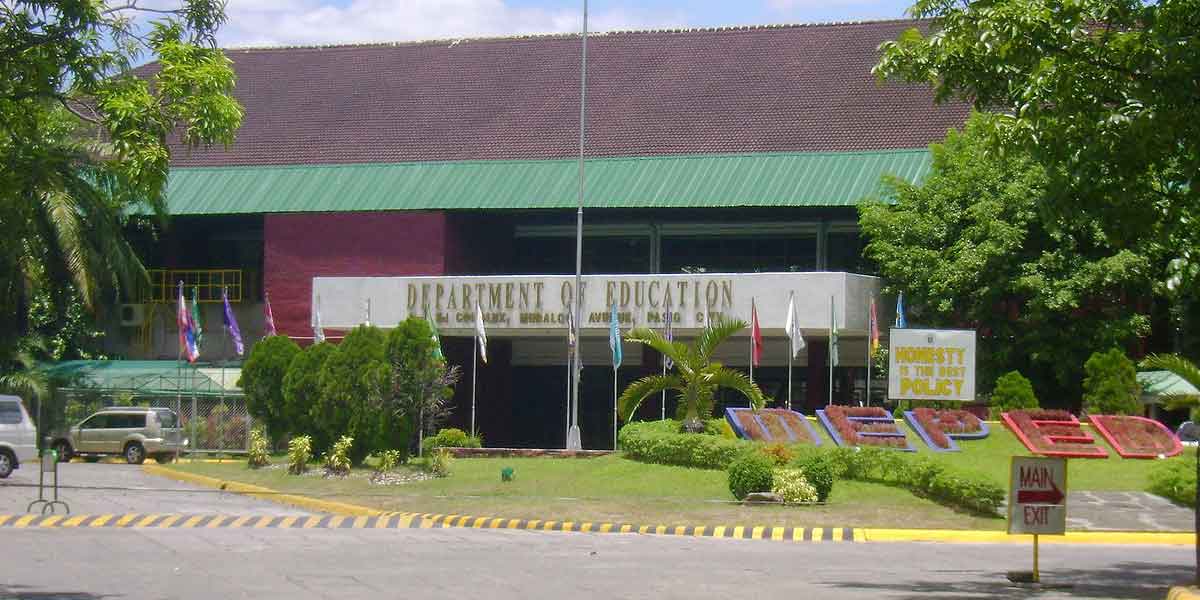
By Rjay Zuriaga Castor
The Department of Education (DepEd) has refuted allegations linking the deaths of two teachers in Santa Barbara, Iloilo to heat stroke during on-site classes.
DepEd released a statement on Tuesday evening, April 23, countering a news report from XFM Radyo Patrol Iloilo.
“Patay ang duha ka maestra sang na-heat stroke samtang nagaklase sa Sta Barbara. Suno sa doktor, lunsay may heart problem/heart disease ang maestra kag nag-trigger ang masakit bangud sang tuman kainit nga tiempo,” the local radio station in an update it labeled as breaking news.
[The two teachers died of heat stroke while conducting classes in Sta. Barbara. According to the doctor, the teachers had underlying heart problems/disease, and the illness was exacerbated by the extreme heat.]
Other news outlets in Iloilo and elsewhere also posted similar information on their social media accounts.
In another update, the local radio station also cited the confirmation of Municipal Health Officer Dr. Zoe Sucaldito Jr., who reportedly associated the death with extreme weather conditions.
DepEd criticized the report as “highly inaccurate and misleading,” lamenting the sensationalization of the death of teachers at the expense of factual reporting.
Leonil Salvilla, spokesperson of the Schools Division Office (SDO) of Iloilo, told Daily Guardian that the province has not recorded recent deaths among teachers due to heatstroke or other heat-related illnesses.
Salvilla confirmed the deaths of two female teachers from Santa Barbara Central Elementary School but stressed that both were at their homes when they passed away.
The SDO spokesperson disclosed that a 52-year-old teacher passed away on February 2 due to hypertensive cardiovascular disease, while another, aged 43, succumbed to an aneurysm on March 18.
In light of recent extreme weather conditions, Salvilla noted reports received by the SDO Iloilo regarding heat-related illnesses such as headaches and elevated blood pressure among teachers; and nosebleeds and dizziness for students
“We deployed school health and nutrition units in the field to constantly monitor the situation of our schools, especially our students,” he added.
Salvilla also emphasized that as early as March, the SDO Iloilo issued a memorandum directing school heads to cancel and suspend face-to-face classes and the conduct of modular distance learning modality during unfavorable weather conditions.
“As early as March, we reiterated DepEd memorandums to our school heads that they can conduct distance learning modalities if our schools are not conducive for learning,” he said.
Salvilla noted the limited capacity of deployed nurses but assured they are distributed across districts or clusters of schools to ensure coverage.
Computed heat indices of the Philippine Atmospheric, Geophysical, and Astronomical Services Administration (Pagasa) in areas in the province of Iloilo showed a heat index ranging from 41 to 43 degrees Celsius, which is already on the “danger” level.
Pagasa said that such high temperatures can lead to heat cramps and heat exhaustion, with heat stroke becoming probable with prolonged exposure to the scorching heat.




















